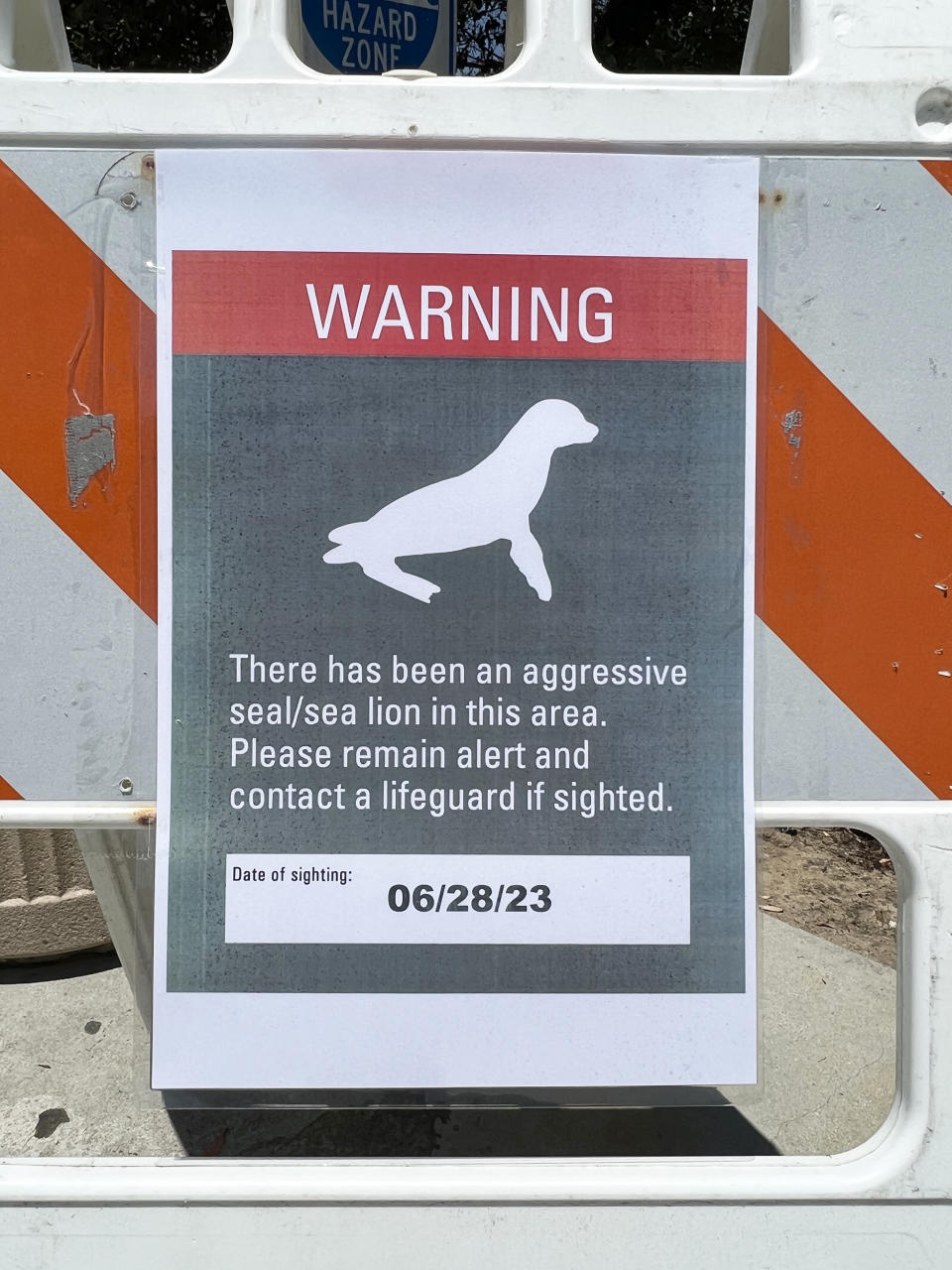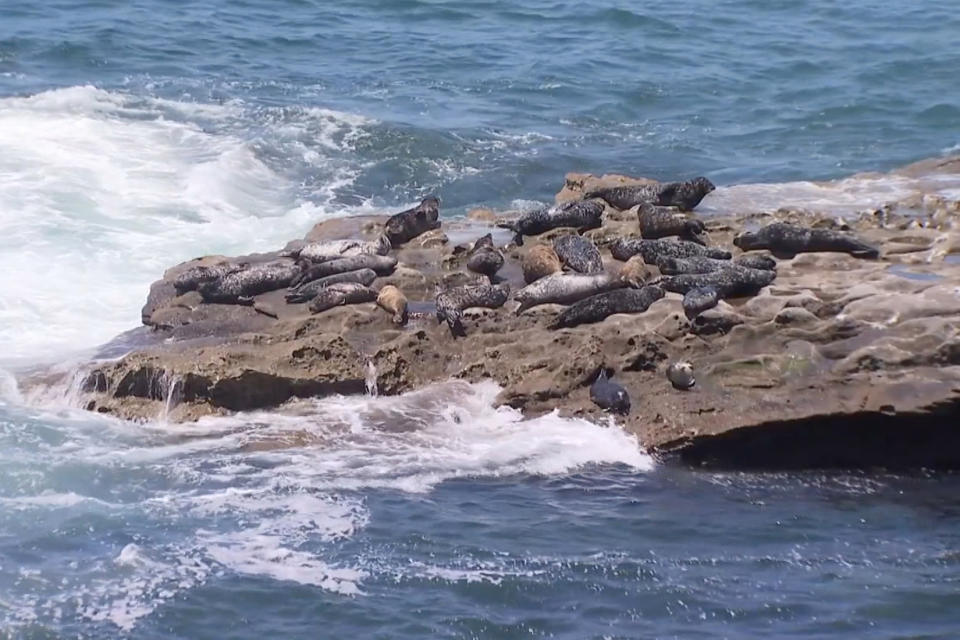Sea lions aren't acting like themselves — they're more aggressive because of algae bloom in California
Southern California beachgoers are being warned that sea lions are showing unusual signs of aggression as they continue to be exposed to a toxic algae bloom.
Warning signs were placed at Salt Creek Beach and Strands Beach after two reports this week of sea lion-related injuries, a spokesperson for Orange County Parks said.
The first incident occurred at Salt Creek on Monday, when a juvenile told lifeguards that he had been bitten while wading in the water. He was treated and released to a guardian, with the advice to seek additional treatment at an urgent care clinic.

Lifeguards at Strands Beach were alerted to another injury that evening, but the person involved declined treatment.
Strands Beach closed Tuesday afternoon after reports of an aggressive sea lion emerged, and it reopened Wednesday, the parks department said.
Sick animals
Aggression toward humans is not typical for sea lions, but the mammals are very sick at the moment because of an offshore toxic algae bloom, said John Warner, the CEO of the Marine Mammal Care Center, a nonprofit rescue organization that serves Los Angeles County.
The algae, Pseudo-nitzschia, is consumed by fish, which are then eaten by sea lions. The fish carry a neurotoxin called domoic acid that the algae produces, essentially poisoning the sea lions, Warner said.
"It literally affects their brains, and the behavior of sea lions — especially when the concentrations of domoic acid are quite high — is drastically changed," Warner said. "They become symptomatic in ways that are just unpredictable in terms of their behavior, aggressiveness that we don't normally see."

The bloom has been traced to waters off central California and the northern reaches of Southern California, where warm water and cooler water coming up from the depths, called upwelling, can create ideal conditions for algae blooms.
NOAA Fisheries said in a report this month that the algae bloom is suspected in the deaths of hundreds of California sea lions and close to 60 dolphins in the first weeks of June.
Reports of bites
Justin Viezbicke, the stranding coordinator for NOAA Fisheries’ West Coast Region in California, said the department does not track sea lion bites in part because of their rarity.
Similar bites have been reported in other Southern California regions, Warner said, including Santa Monica, but most appear to have been in shallow water.
Experts believe the mammals are so sick and scared that they are attacking humans who get too close in their vulnerable state, Warner said.
"None of this has been researched and definitively pointed to that I'm aware of," Warner said. "But putting 2 and 2 together, when you have this very large algal bloom and domoic acid event, it's pretty easy to connect the dots in a way that we're comfortable assuming that these are obviously connected incidents."
Los Angeles County Lifeguards this week urged beachgoers on Instagram to stay at least 50 feet from the sea lions. The post also encouraged anyone who spots a beached sea lion to reach out to the Marine Mammal Care Center.
"Public vigilance is essential and thank you to the work @marinemammalcare has been doing these last few weeks," the post said.
Warner believes people should not fear sea lions but simply understand that approaching them at the moment is not a good idea.
"Sea lions, you know, they're the ubiquitous California ocean wildlife animal that people love. And this is not them," Warner said. "So I don't want this to turn into people viewing sea lions like they do 'Jaws.' ... This is not sea lions' suddenly turning into evil people biters. I don't want people afraid of these animals going forward. This is a really sad event."
The Marine Mammal Care Center is working to rescue and treat sea lions affected by domoic acid exposure. Although there is no standard treatment, the center's website says the animals are hydrated with fluids, antiseizure medication and general nutrition that will not expose them to the toxin.
This article was originally published on NBCNews.com

